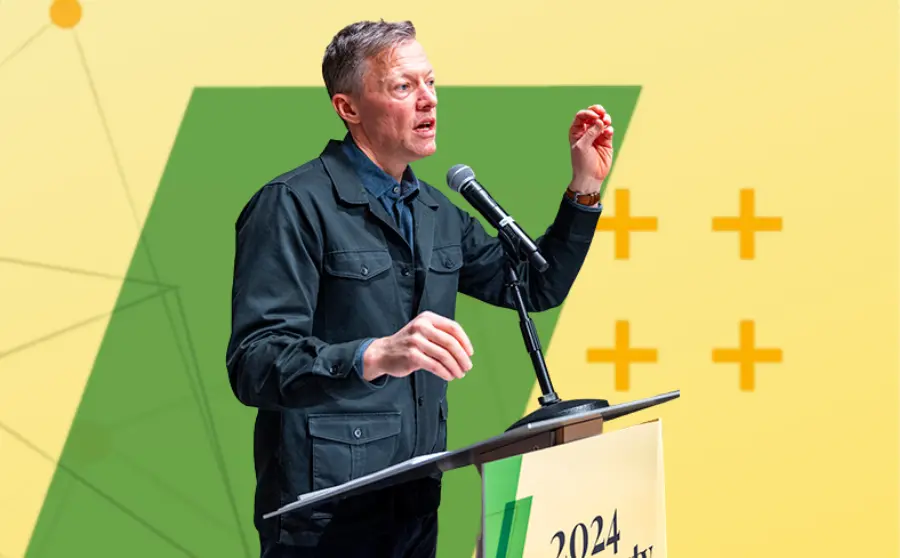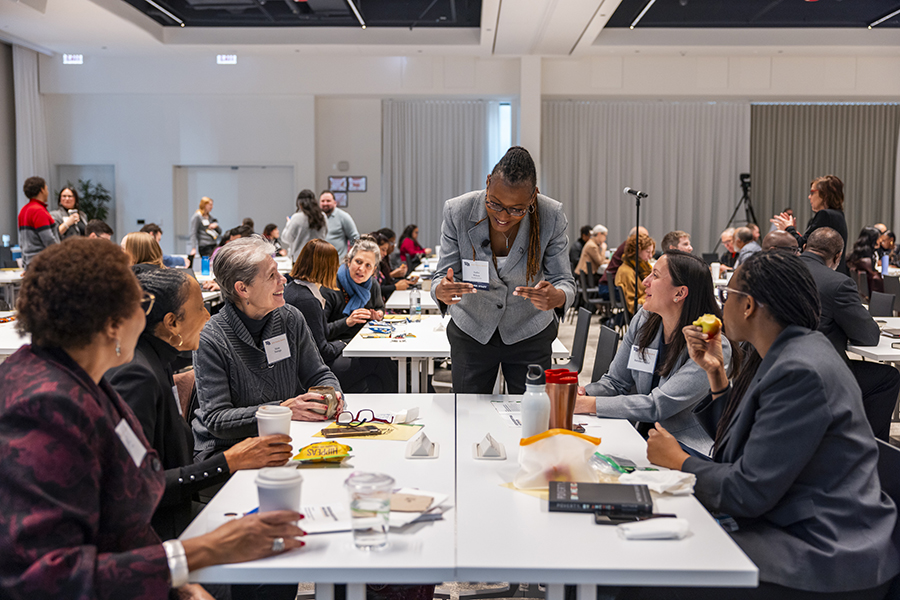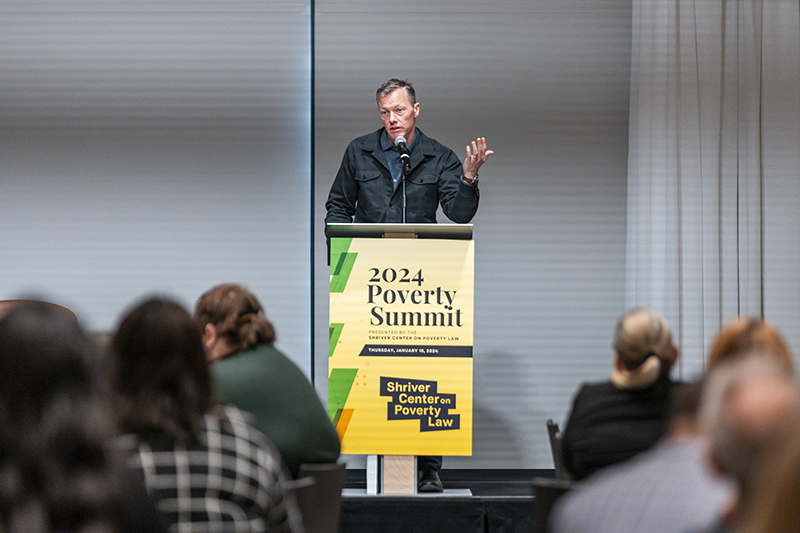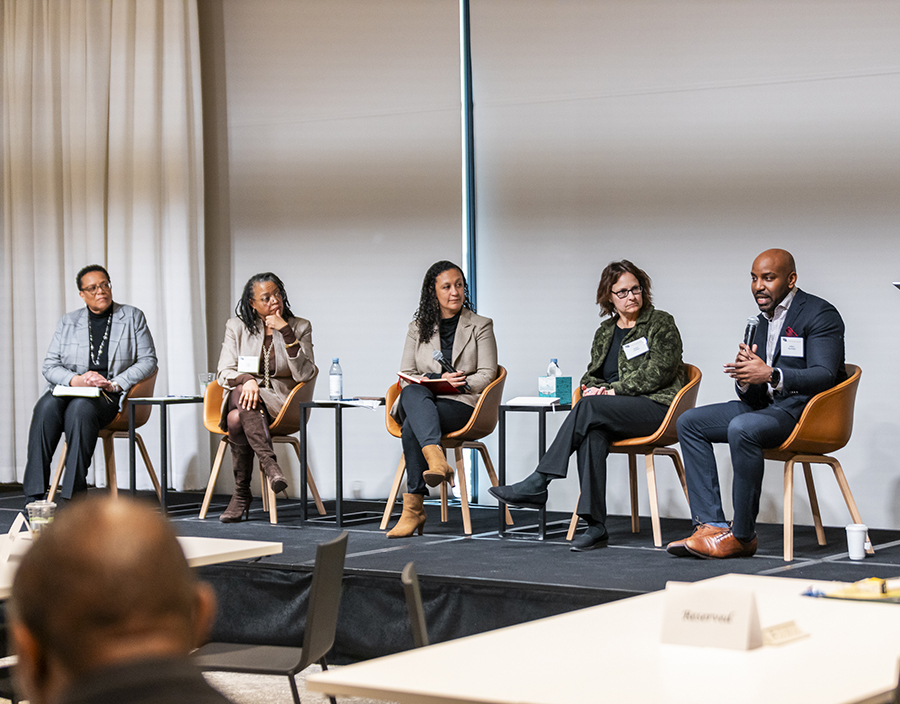
Key takeaways from the January 18 event
The 2024 Poverty Summit, presented by the Shriver Center on Poverty Law, marked the 60th anniversary of the War on Poverty and featured special guest Matthew Desmond, author of Poverty, By America.
The event drew a packed house at Convene Willis Tower in Chicago on a frigid day in January and featured interactive panels about housing access, child welfare reform, and entrepreneurism in underserved communities.
In her opening remarks, Shriver Center President and CEO Audra Wilson said the event was intentionally timed to coincide with the War on Poverty milestone.

“As a national organization born out of the War on Poverty, the Shriver Center on Poverty Law leads the fight for economic and racial justice by challenging the powerful, shaping policy, and building solutions that last. In a nutshell, we change rules to change lives. We’re fighting for a future free from poverty — and free from racism — because none of us are free until all of us are free.”
The excitement in the air was palpable when author, professor, and self-proclaimed poverty abolitionist Matthew Desmond took the stage. “Poverty is debt collector harassment on top of the nauseating fear of eviction. It’s the suffocation of your talents and your dreams. It is death, come early and often,” he said.

Drawing from autobiographical details, on-the-ground reporting, and national data, he mapped out the roots of poverty in the U.S., why it persists, and what to do about it. In her piece, Dawn Raftery, the Shriver Center’s vice president of communications, observed that Desmond’s speech underscored the need to challenge conventional thinking and tell a better, more persuasive story.
Following Desmond’s talk, the panel discussions explored intersecting issues, uplifted lived experience, and put forth innovative solutions.

Hearing success stories from Black-owned businesses set an uplifting tone for the work ahead. Find how out how to support our efforts to advance economic and racial justice here.